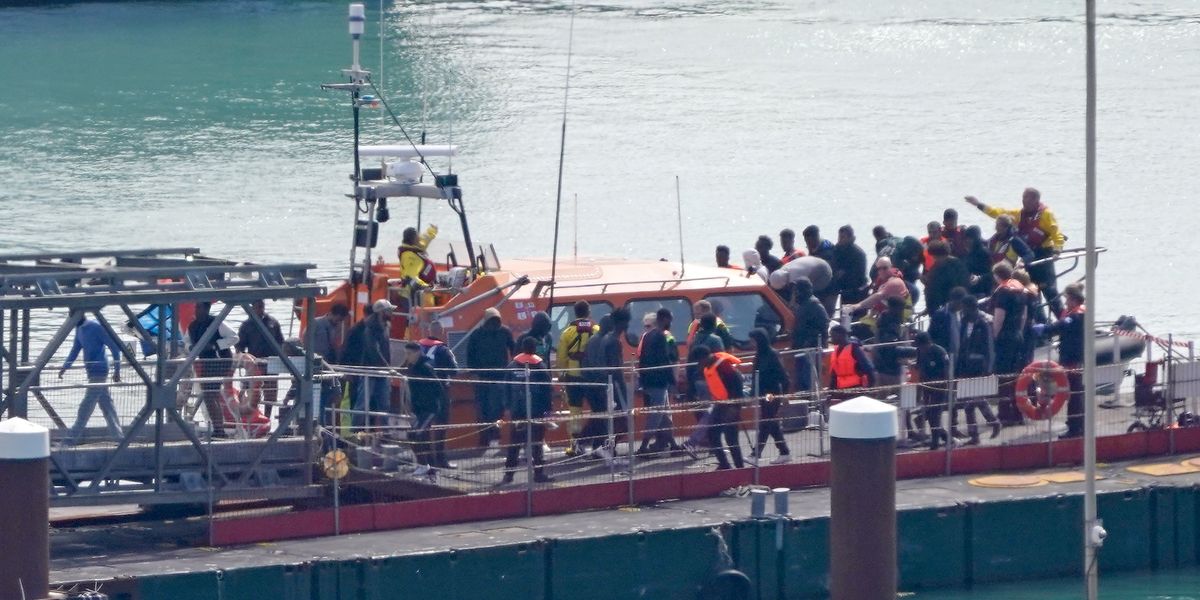The UK’s Stance on Migrant Crossings: A Divergence from Italy’s Approach
In recent months, the issue of migrant crossings in the English Channel has escalated into a significant humanitarian crisis, drawing attention from both the public and government officials. The UK government, led by Immigration Minister Dame Angela Eagle, has made a definitive choice not to adopt an Italian-style approach of turning back migrant boats to France. This decision comes amidst a tragic backdrop, highlighting the complexities and challenges of managing migration in the region.
A Tragic Context
The urgency of the situation was underscored by a recent tragedy in which eight migrants lost their lives when their overcrowded boat struck rocks and sank off the French coast. This incident has contributed to a grim statistic: at least 45 migrant deaths in the Channel this year alone, a staggering increase from the 12 deaths recorded in the previous year. Such tragedies have intensified the debate surrounding the best methods to manage migrant crossings and ensure safety in the waters.
The UK’s Position
Dame Angela Eagle has articulated the UK’s stance, emphasizing that the country cannot unilaterally turn back boats without France’s agreement. The French government maintains a policy that only allows for the interception of vessels if the migrants on board request rescue. Eagle explained, “The French don’t accept that migrants should always be returned to them. If incidents happen in French territorial waters, they go back to France. If they happen in British territorial waters, we bring them into safety in the UK.” This policy has led to controversial situations where French navy and border force vessels shadow migrant boats to the mid-point of the Channel, where they are then rescued by British Border Force and taken to Dover.
The Italian Approach
In stark contrast, Italy has recently struck a £90 million deal with Tunisia, allowing for the interception and return of migrant vessels. This agreement has garnered attention for its effectiveness, reportedly reducing Mediterranean crossings by more than 60 percent. Sir Keir Starmer, leader of the UK’s Labour Party, met with Italian Prime Minister Giorgia Meloni to discuss this approach, which has sparked discussions about whether similar measures could be implemented in the UK.
Strengthening Border Security
In response to the ongoing crisis, the UK government is ramping up its efforts to combat people smuggling. Dame Angela Eagle announced an additional £75 million investment aimed at strengthening border security command. This funding will facilitate the deployment of personnel to Europol, enhance investigative capabilities, and improve intelligence sharing with European partners. Eagle stated, “We can work with our partners across Europe and in other places to try and put a stop to this vile trade.” This proactive approach aims to address the root causes of illegal migration and bolster the UK’s border security.
Monitoring Developments in Italy
The UK government is also closely monitoring Italy’s plans to process asylum seekers in Albania before deciding whether to pursue a similar policy. Eagle noted, “Firstly we don’t know whether it will work yet, because it hasn’t started.” She emphasized that any offshore processing scheme adopted by the UK must meet specific criteria, including being workable, cost-effective, and in line with international law.
Conclusion: A Complex Landscape
The divergence between the UK and Italy’s approaches to managing migrant crossings reflects the complexities of international migration policy. While Italy’s strategy has shown promising results, the UK government remains cautious, prioritizing safety and legal compliance in its decision-making. As the situation continues to evolve, the UK’s commitment to exploring new strategies while ensuring the protection of vulnerable migrants will be crucial in addressing this pressing humanitarian issue. The tragic loss of life in the Channel serves as a stark reminder of the urgent need for effective and compassionate solutions to the ongoing migration crisis.
